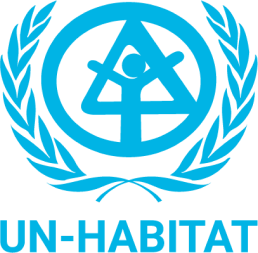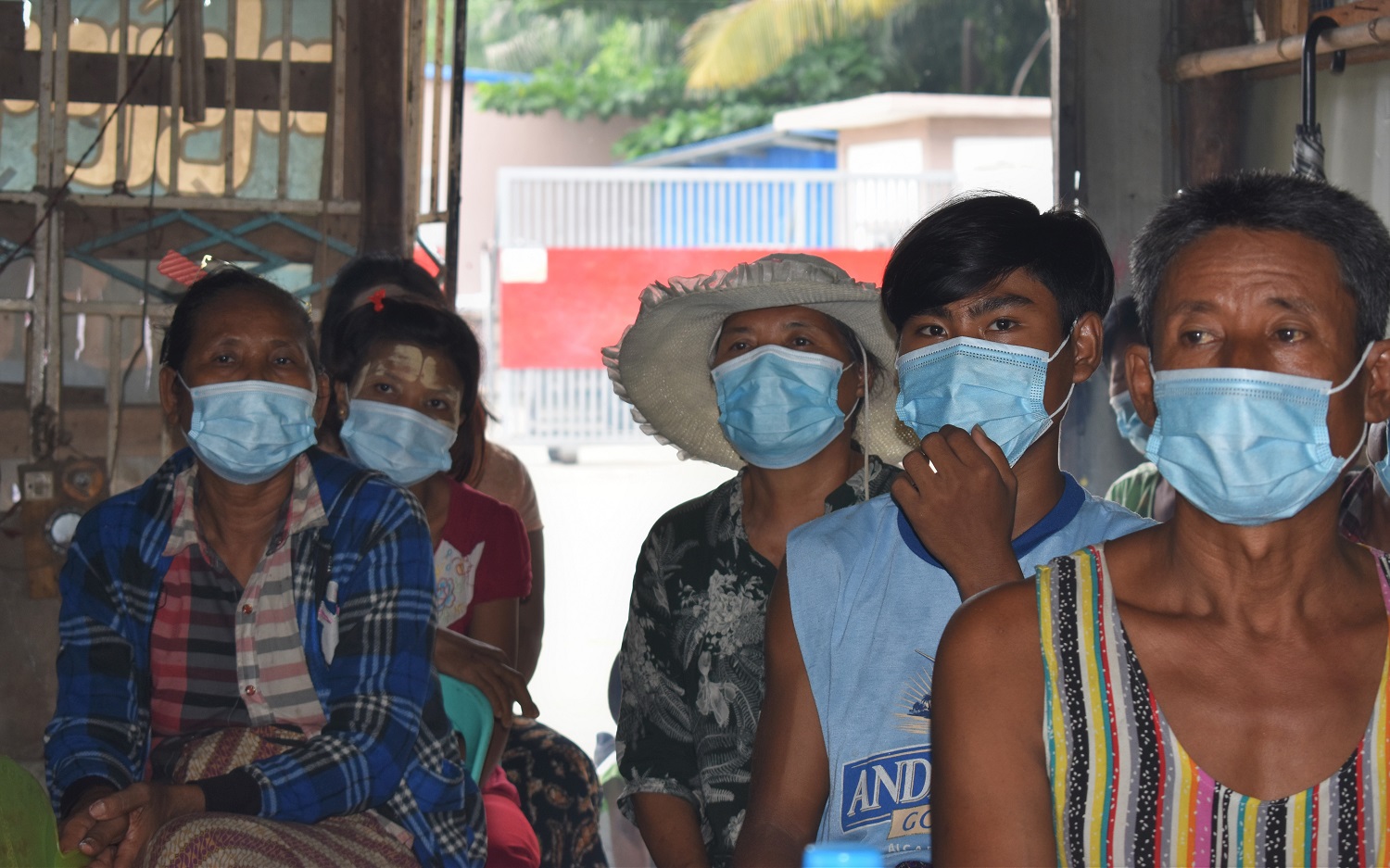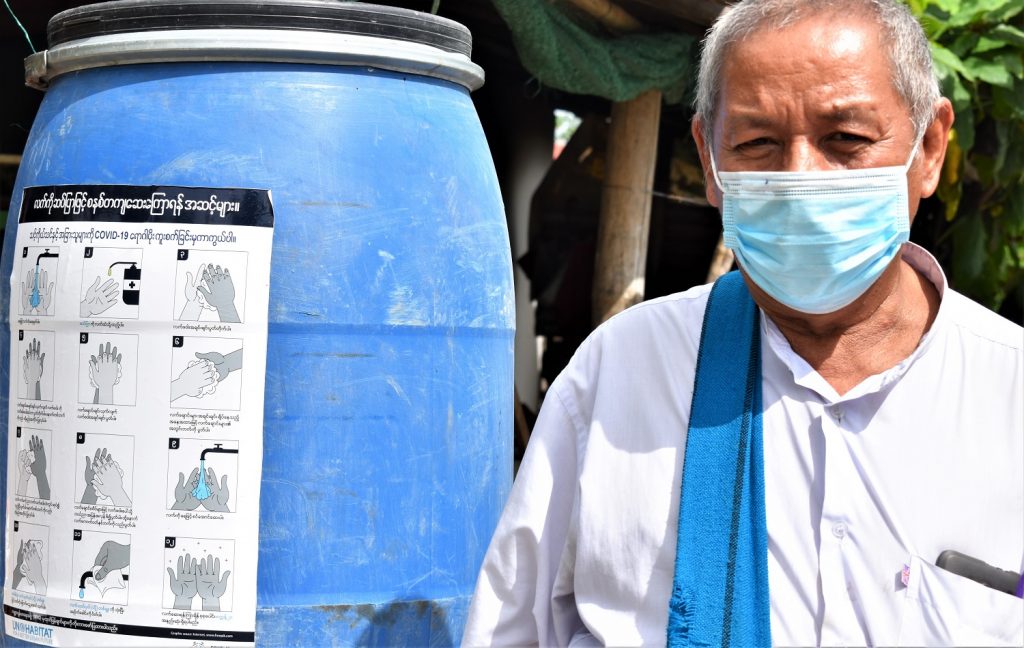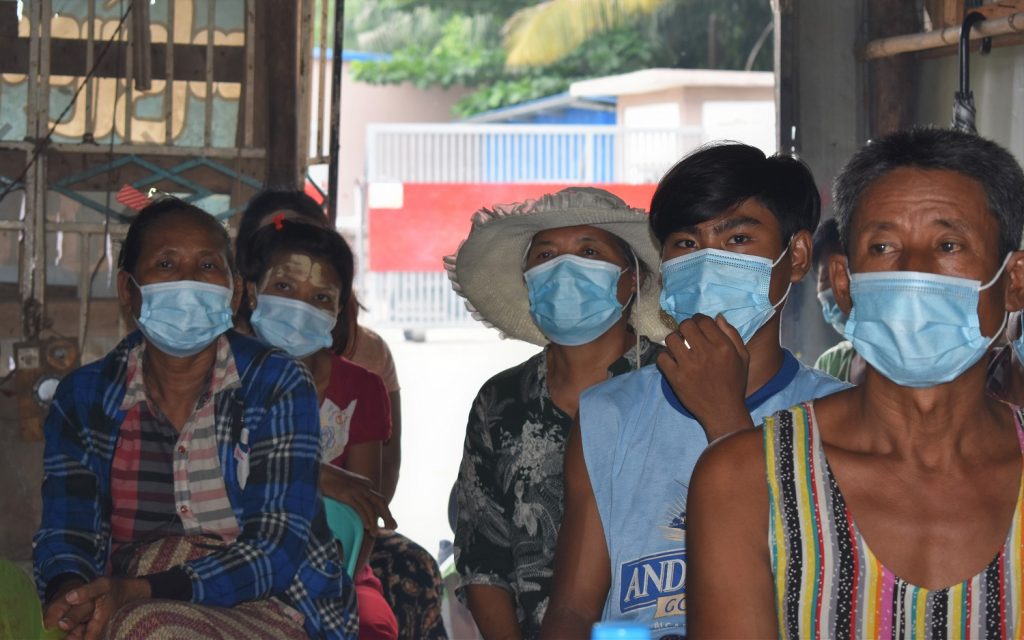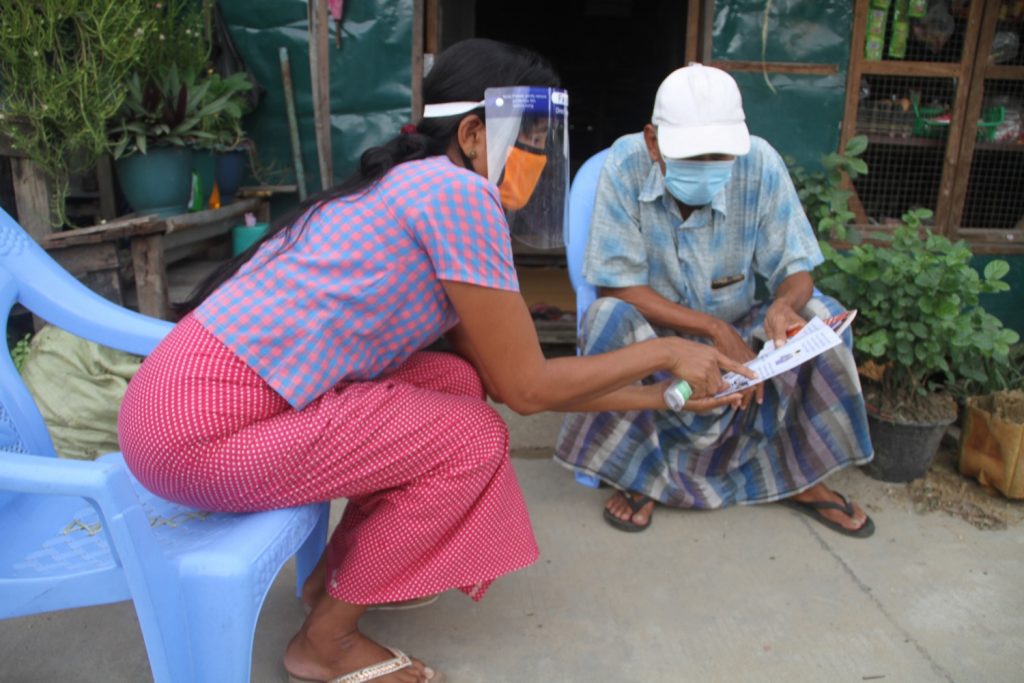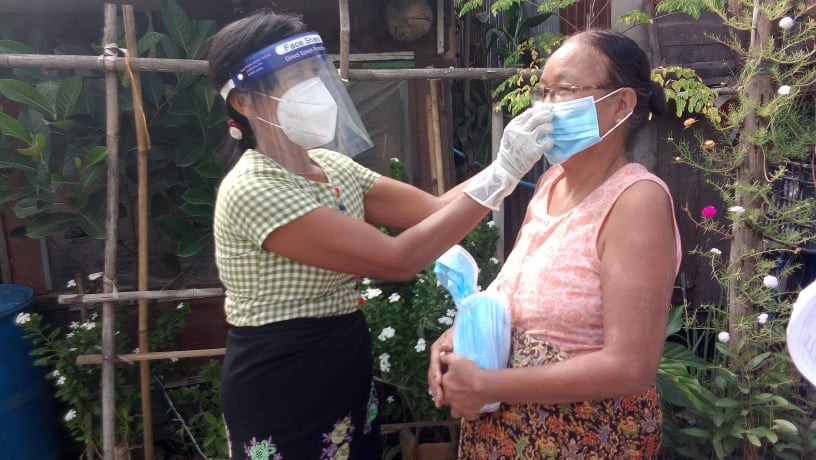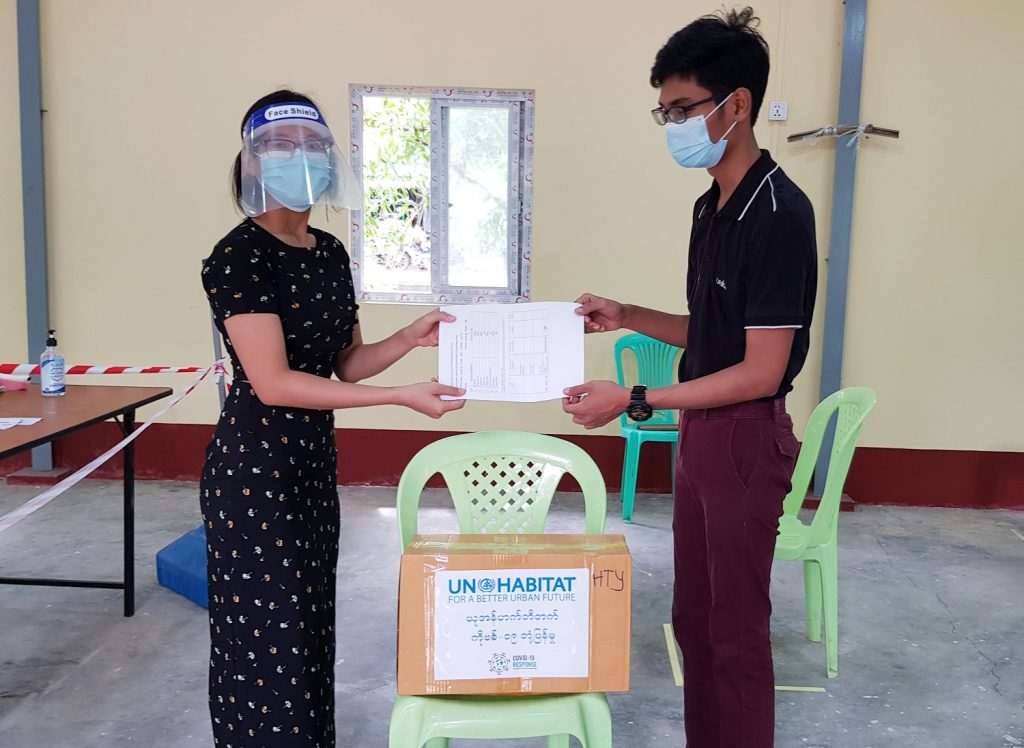Background
UN-Habitat’s rapid assessment survey in Yangon’s informal settlements revealed an alarming picture of the impact of COVID-19 on informal residents of the city, totaling 400,000 people. As of May 2020, the survey revealed wide-spread loss of jobs (81% of households surveyed had at least one member who lost their job), drastic fall in income (affecting 94% of surveyed households), increased households’ debt (69% of surveyed households had taken on new debt), and widespread fear of evictions (53% of households reported being fearful of evictions from their current residence). Furthermore, while knowledge and awareness of key COVID-19 prevention actions was relatively high (for instance, 96% of surveyed households identified handwashing as a key COVID-19 prevention action), households reported not having the wherewithal or economic means to put this knowledge into practice. 62% of households reported having no space in their settlements for physical distancing and 33% of households reported not having the financial means to purchase masks, a legal requirement while in public spaces in Yangon.
While timely government response, on-groundwork by civil society groups and volunteers combined with crucial support by UN agencies including UN-Habitat has prevented a widespread outbreak of COVID-19 in informal settlements, residents are both fearful of emergent outbreaks and the economic fallout of the pandemic. Furthermore, the Central Committee on Prevention, Control and Treatment on COVID-19, Timely intervention to prevent possible infection within schools and further spread from schools to residences, including in informal settlements is crucial.
Objectives
The project has two main components:
Component A:
- To survey the impacts of COVID-19 on urban poor living in informal settlements in Yangon
- To identify medium to long-term approaches of assistance targeted at communities in informal settlements
Component B:
- To improve awareness about COVID-19 and prevention actions among urban poor communities living mostly in selected informal settlements, including school students
- To strength preparedness in informal settlements by disseminating accurate information, expanding access to WASH, providing PPEs to frontline responders in informal settlements and critical cleaning supplies to schools, and supporting livelihood of community volunteers at risk of income loss
Activities
Component A
- Survey on impact and response to COVID-19 in informal settlements
Component B
- Enhance community awareness to tackle COVID-19 by provision of reliable and accurate information
- Enhance public preparedness to combat COVID-19 and prevent infection of school children by supporting access to water, essential protective kits and critical cleaning supplies
- Improve safety of first line responders in health facilities by having PPEs
- Improve income of community volunteers and SHGs improved to combat loss of income due to COVID-19
Donors and Stakeholders
Donor:
Japan International Cooperation Agency (JICA)
Key Project Stakeholders:
Yangon Regional Government (YRG), Yangon City Development Committee (YCDC), Department of Urban and Housing Development (DUHD), Department of Health and Sports, Ministry of Education, Township Development Committees, Community Development Committees (CDCs), Community-based Organizations (CBOs), Local communities
